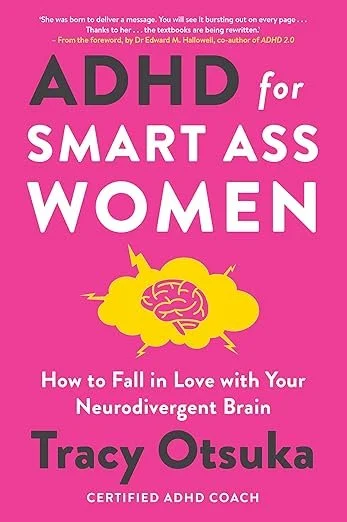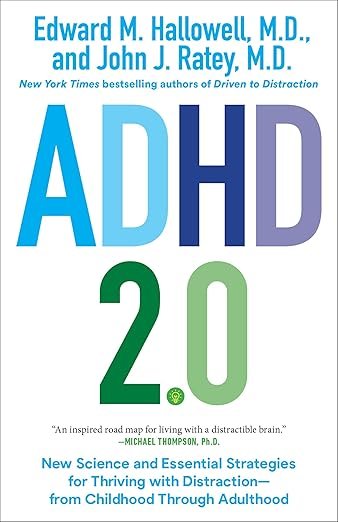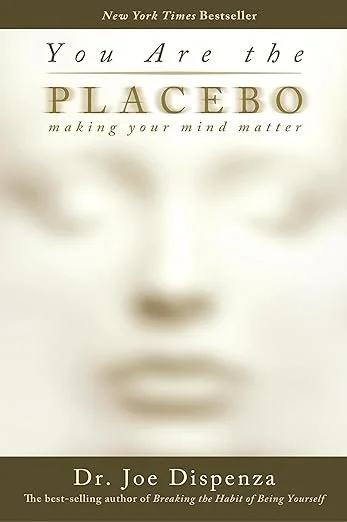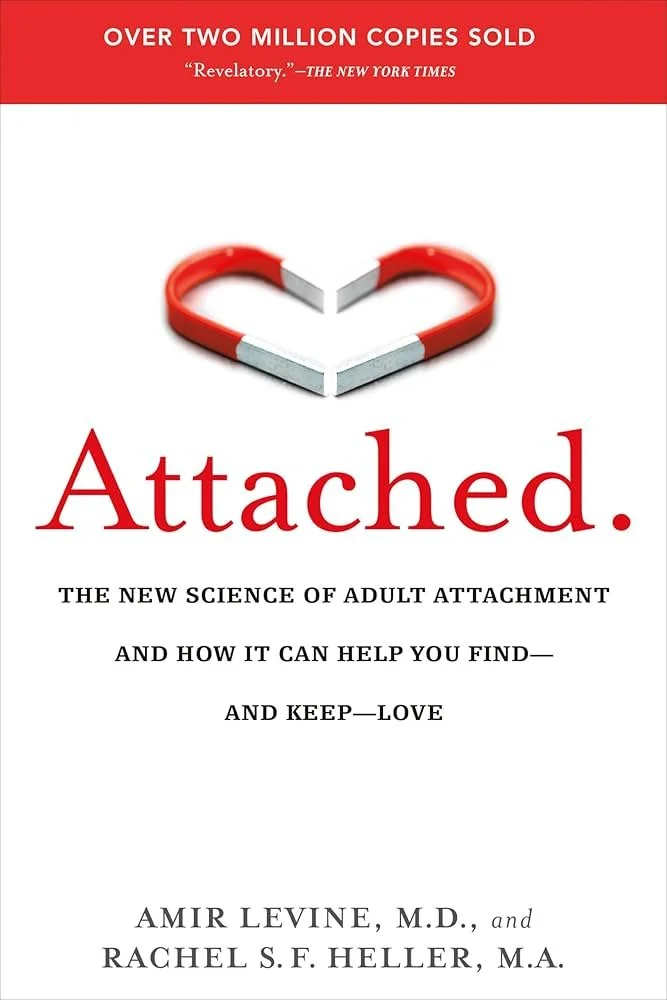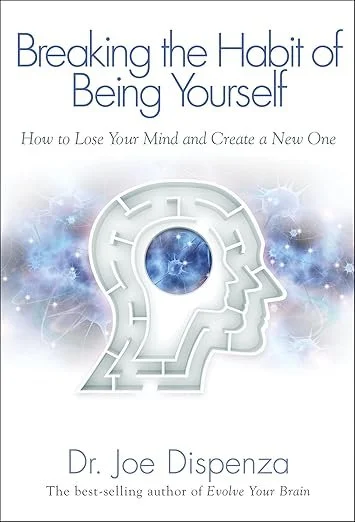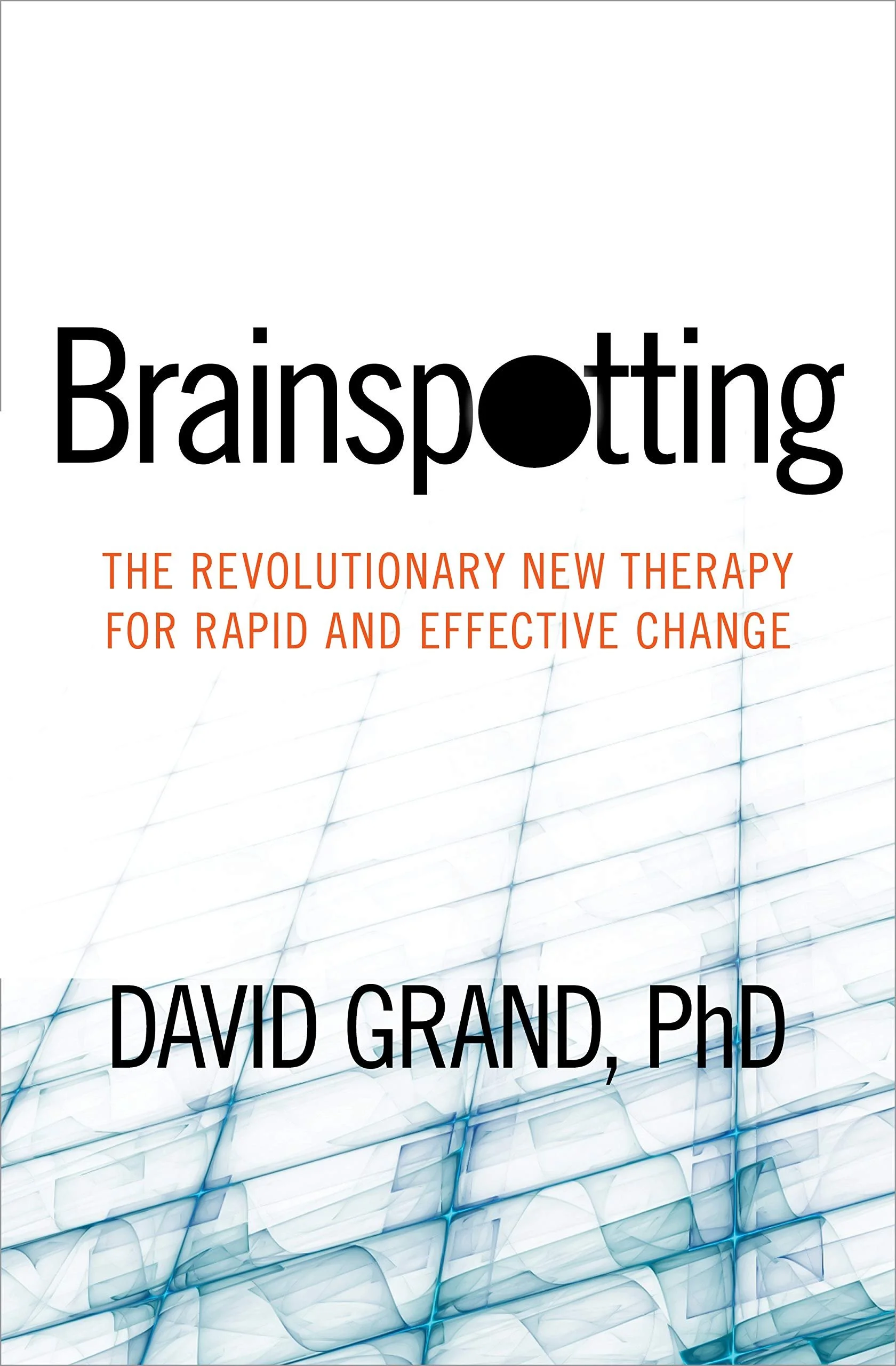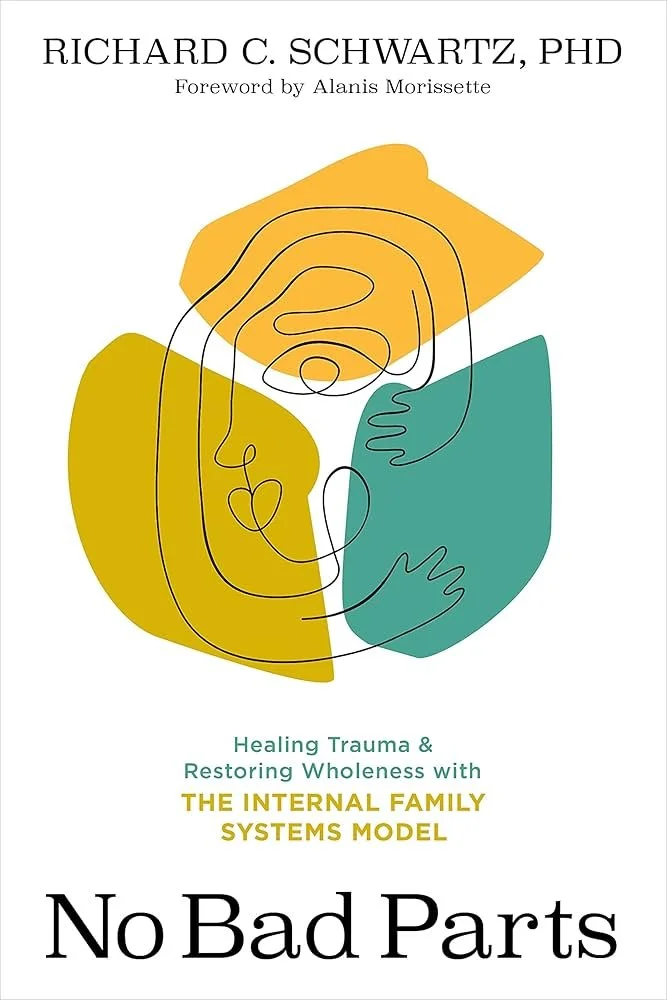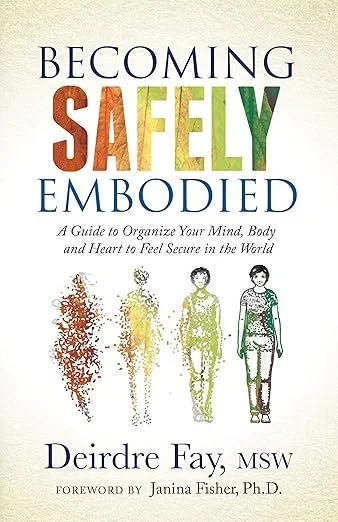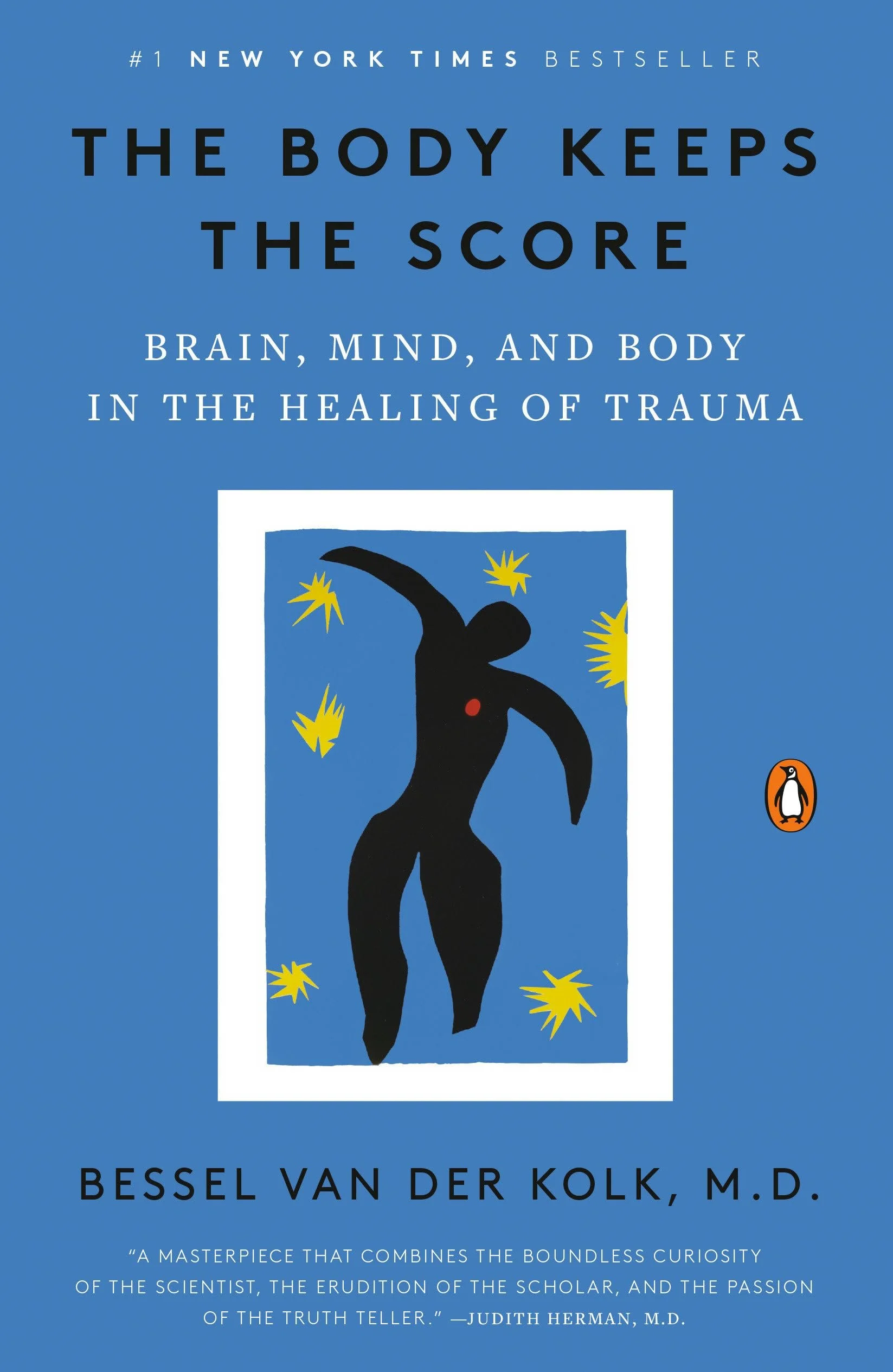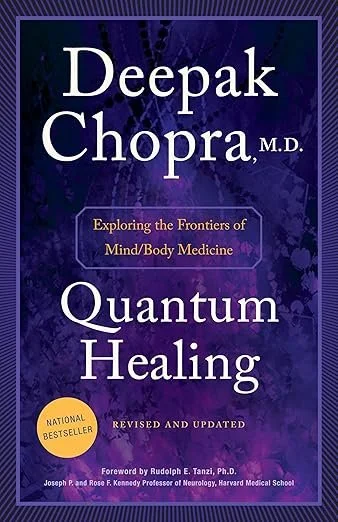Book Club
Book Club
A curated collection of the books that I am currently reading, and have read, that I recommend as a resource to assist in your healing journey
Currently Reading
ADHD for Smart Ass Women
Tracy Otsuka
On Deck
All About Love: New Visions
Bell Hooks
Finished
ADHD 2.0
Edward M. Hallowell & John J. Ratey
Previous Reads
Adult Children of Emotionally Immature Parents
In this breakthrough book, clinical psychologist Lindsay Gibson exposes the destructive nature of parents who are emotionally immature or unavailable. You will see how these parents create a sense of neglect, and discover ways to heal from the pain and confusion caused by your childhood. By freeing yourself from your parents’ emotional immaturity, you can recover your true nature, control how you react to them, and avoid disappointment. Finally, you’ll learn how to create positive, new relationships so you can build a better life.
It Didn’t Start With You
It Didn’t Start With You by Mark Wolynn explores inherited family trauma—the idea that unresolved emotional wounds, fears, and patterns can be passed down through generations, shaping our behaviors, relationships, and even physical health. Drawing on neuroscience, epigenetics, and family systems theory, Wolynn explains how trauma can linger in our genes and family dynamics, often manifesting as anxiety, depression, or unexplained struggles. The book provides practical tools—such as core language mapping and guided exercises—to help identify and break these inherited cycles, offering a path to healing that goes beyond our own life experiences.
You Are The Placebo
You Are the Placebo by Dr. Joe Dispenza explores the science behind how beliefs, thoughts, and emotions can physically reshape the brain and body, creating profound healing or illness. Drawing on neuroscience, epigenetics, and case studies, Dispenza reveals how the placebo (and nocebo) effect demonstrates the mind's power to influence biology—from reversing disease to overcoming limitations. Through meditation, mental rehearsal, and elevated emotional states, the book teaches readers how to harness this power to rewire their biology, break habitual patterns, and create lasting transformation. A blend of cutting-edge science and practical techniques for becoming your own placebo.
Widen the Window
Widen the Window by Elizabeth A. Stanley explores how chronic stress and trauma narrow our capacity to cope, leading to burnout, emotional dysregulation, and poor decision-making. The book combines neuroscience, mindfulness, and resilience training to teach readers how to expand their "window of tolerance"—the optimal zone for handling stress - through body-based techniques, self-regulation, and deliberate recovery practices. Stanley, a military veteran and researcher, emphasizes the importance of balancing stress with recovery to enhance performance, well-being, and resilience in high-pressure environments.
Attached.
Attached by Amir Levine and Rachel Heller explores attachment theory in relationships, explaining how our early bonds shape adult romantic dynamics. The book identifies three attachment styles—Secure, Anxious, and Avoidant—and reveals how they influence communication, conflict, and emotional needs. By understanding these patterns, readers can recognize unhealthy cycles, foster more secure connections, and choose partners who truly meet their emotional needs. Blending science with practical advice, Attached offers a roadmap for building stronger, more fulfilling relationships.
Breaking The Habit of Being Yourself
Breaking the Habit of Being Yourself by Dr. Joe Dispenza merges neuroscience, quantum physics, and mindfulness to explain how habitual thoughts and emotions keep us stuck in the same realities. Dispenza reveals how the brain reinforces old patterns, creating a "hardwired" version of the self, but also provides a step-by-step framework to rewire the brain, change emotional states, and manifest a new reality. Through meditation, mental rehearsal, and conscious awareness, readers learn to break free from limiting beliefs, align with their desired future, and literally reprogram their biology and energy to become the best version of themselves.
Brainspotting
Brainspotting by David Grand introduces a powerful therapeutic approach that harnesses the brain’s natural ability to process trauma and emotional distress by identifying and focusing on "brainspots"—eye positions linked to unprocessed trauma in the subconscious. Grand explains how this method, an evolution of EMDR (Eye Movement Desensitization and Reprocessing), helps clients access and release deep-seated psychological and somatic blockages, leading to profound healing. The book outlines practical techniques for therapists and clients to use brainspotting for trauma resolution, performance enhancement, and emotional regulation, emphasizing its effectiveness for both psychological and physical healing.
No Bad Parts
No Bad Parts by Richard Schwartz, founder of Internal Family Systems (IFS) therapy, challenges the idea of "bad" or unwanted emotions, proposing instead that every part of us—even anger, fear, or shame—has a protective role. Schwartz explains how self-awareness and self-compassion can help us unburden exiled traumas and harmonize our inner "parts" under the leadership of the core Self (calm, curious, and compassionate). Through relatable examples and exercises, the book offers a path to healing by embracing all aspects of ourselves with curiosity rather than judgment.
Becoming Safely Embodied
Becoming Safely Embodied by Deirdre Fay is a practical guide designed to help individuals struggling with trauma, anxiety, or dissociation to reconnect with their bodies in a safe and grounded way. The book offers mindfulness-based exercises, somatic techniques, and compassionate self-awareness tools to foster healing, emotional regulation, and a deeper sense of embodied presence. It’s particularly helpful for those who feel disconnected from their physical selves due to past trauma.
The Body Keeps the Score
The Body Keeps the Score by Bessel van der Kolk explores how trauma reshapes the brain and body, often leaving survivors stuck in cycles of fear, dissociation, and physical illness. Drawing on decades of research, van der Kolk explains how trauma disrupts memory, self-regulation, and relationships, while highlighting innovative treatments—such as EMDR, yoga, neurofeedback, and somatic therapy—that help rewire the nervous system and restore a sense of safety. The book emphasizes that healing requires integrating mind and body, offering hope for recovery through both scientific insight and compassionate, trauma-informed care.
Somatic Internal Family Systems Therapy
Somatic Internal Family Systems Therapy by Susan McConnell blends Internal Family Systems (IFS) with somatic (body-based) therapy, offering a holistic approach to healing trauma. The book explores how unprocessed emotions and trauma manifest not just in the mind but also in the body, creating protective "parts" that influence behavior and physical sensations. McConnell introduces five core practices—awareness, breath, resonance, movement, and touch—to help clients access and integrate these exiled parts with compassion. By bridging IFS with somatic experiencing, the book provides a powerful framework for releasing stored trauma and restoring harmony between mind, body, and spirit.
Quantum Healing
Somatic Internal Family Systems Therapy by Susan McConnell blends Internal Family Systems (IFS) with somatic (body-based) therapy, offering a holistic approach to healing trauma. The book explores how unprocessed emotions and trauma manifest not just in the mind but also in the body, creating protective "parts" that influence behavior and physical sensations. McConnell introduces five core practices—awareness, breath, resonance, movement, and touch—to help clients access and integrate these exiled parts with compassion. By bridging IFS with somatic experiencing, the book provides a powerful framework for releasing stored trauma and restoring harmony between mind, body, and spirit.
To-Be-Read List
Gorilla and the Bird A Memoir of Madness and a Mother's Love
Eight dates Essential Conversations for a Lifetime of Love
My Grandmother's Hands: Racialized Trauma and the Pathway to Mending Our Hearts and Bodies
Do Better Spiritual Activism for Fighting and Healing from White Supremacy
Post Traumatic Slave Syndrome America's Legacy of Enduring Injury and Healing
Waking The Tiger: Healing Trauma
Attachment: 60 Trauma-Informed Assessment and Treatment Interventions Across the Lifespan
Braiding Sweetgrass: Indigenous Wisdom, Scientific Knowledge and the Teachings of Plants
Toxic Parents: Overcoming Their Hurtful Legacy and Reclaiming Your Life
Complex PTSD: From Surviving to Thriving: A Guide and Map for Recovering from Childhood Trauma
The Pocket Guide to Polyvagal Theory: The Transformative Power of Feeling Safe
The Power of Your Subconscious Mind
The Mountain is You: Transforming Self-Sabotage Into Self-Mastery
When The Body Says No: The Cost of Hidden Stress
What Happened To You: Conversations on Trauma, Resilience, and Healing
Recovering from emotionally immature parents
Narcissistic Mothers: How to Handle a Narcissistic Parent and Recover from CPTSD
Difficult Mother's, Adult Daughters: A Guide For Separation, Liberation & Inspiration
Masters of Emotional Blackmail
Recovery of Your Inner Child: The Highly Acclaimed Method for Liberating Your Inner Self
Scattered Minds: The Origins and Healing of Attention Deficit Disorder
What My Bones Know: A Memoir of Healing From Complex Trauma
The Power of Now: A Guide to Spiritual Enlightenment
Boundaries: When to Say Yes, How to Say No To Take Control of Your Life
Decolonizing Therapy: Oppression, Historical Trauma, and Politicizing Your Practice
Break the Cycle: A Guide to Healing Intergenerational Trauma
Getting Past Your Past: Take Control of Your Life with Self-Help Techniques from EMDR Therapy
Focusing-Oriented Art Therapy: Accessing the Body's Wisdom and Creative Intelligence
The Garden Within: Where the War with Your Emotions Ends and Your Most Powerful Life Begins
Fight Right: How Successful Couples Turn Conflict Into Connection
Thriving with Adult ADHD: Skills to Strengthen Executive Functioning
Taking Charge of Adult ADHD: Proven Strategies to Succeed at Work, at Home, and in Relationships
Driven to Distraction: Recognizing and Coping with Attention Deficit Disorder
Dirty Laundry: Why Adults with ADHD Are So Ashamed and What We Can Do to Help
In The Realm of Hungry Ghosts: Close Encounters with Addiction
